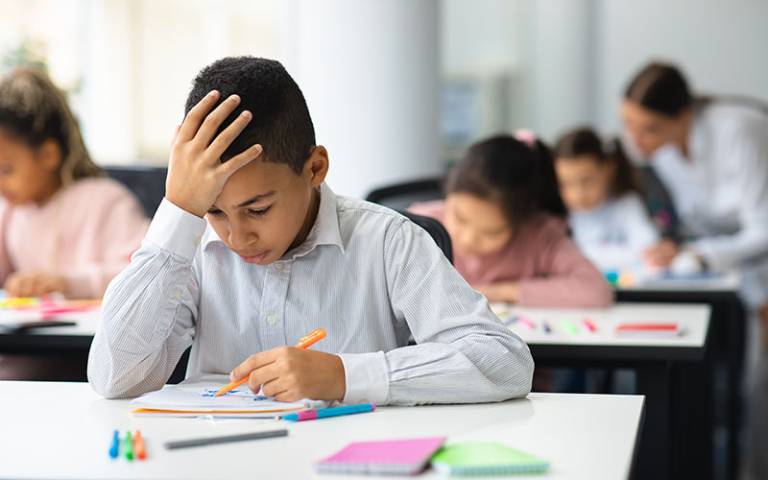Institute of Education
|
|
Pressure of ‘high stakes’ SATs causing negative effects on both students and teachers
Schools are measured on the data provided by test scores, so pressure on teachers is inevitably passed on to students, according to a report based on research from IOE, UCL’s Faculty of Education and Society.

According to the report, almost a third of teachers (32%) say that the pressure of preparing for SATs has a negative effect on student engagement: “It kills their enthusiasm”.
‘The SATs Effect’ reports on teacher experiences of preparing 10- and 11-year-olds for government SATs, which began on 13 May. The research – undertaken in collaboration with Teacher Tapp for campaign group More Than a Score – surveyed over 1,200 Year 6 teachers and school leaders at three points in the year.
Despite teachers’ efforts to make SATs seem less scary, students feel increasingly worried about failing. In December, 43% of teachers reported children feeling anxious about SATs, but this figure rose to 63% in April.
Teachers themselves feel great pressure to deliver results. They say that the need to cover so much ground ahead of SATs week means the opportunity to ‘delve deep’ is lost. This manifests in a narrowing of the curriculum – an emphasis on Maths and English, while other subjects are pushed to the side.
Over half of teachers report the need to squeeze the timetable in an attempt to cover every topic, with 55% reporting ‘teaching to the test’. By April, one month before the SATs, 38% of teachers spent over six hours a week on SAT prep – with one in ten schools spending over 15 hours on test preparation weekly, equivalent to three hours a day.
‘Cusp’ students who are on the border of receiving the ‘expected standard’ mark become a more urgent focus of interventions, though this means that lower attainers – who arguably need help the most – do not get the same level of teaching as borderline students.
“I have been told to forget children’”, says one teacher.
Schools and students in more deprived areas are under more pressure to deliver results, and as such, the pressure of SATs preparation is year-long.
In March, only a small proportion of schools in affluent areas (13%) were spending more than six hours per week on SATs preparation, though this figure was at 40% for schools in the most deprived catchments.
By April, 37% of affluent schools were doing more than six hours of prep, though this figure was still lower than that of schools in deprived catchments (55%). In summary, children in more deprived areas are affected by SATs for more of the school year, though their more affluent peers still experienced intense preparation in the weeks before the test.
The report’s author, Dr Laura Quick, says “The extent to which the need to achieve good SATs results shapes Year 6: they affect what and how teachers teach, they affect teachers, and they affect children themselves.”
Links
- Read the report: The SATs Effect: Year 6 teachers reveal the “toxic”, “horrible” effects of government tests
- View Dr Laura Quick's research profile
- Department of Curriculum, Pedagogy and Assessment
- More Than a Score
Original article link: https://www.ucl.ac.uk/ioe/news/2024/may/pressure-high-stakes-sats-causing-negative-effects-both-students-and-teachers


